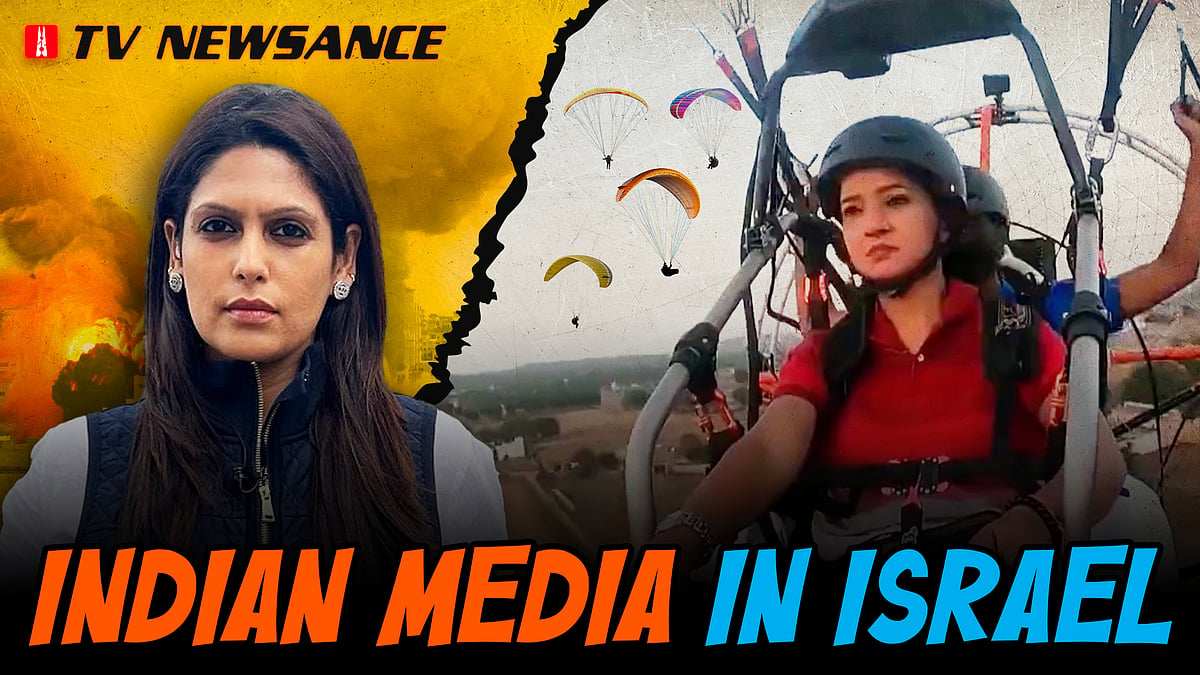At least 17 journalists dead in Israel-Palestine violence: CPJ
These include 13 Palestinians, three Israelis and one Lebanese, according to a report.
At least 17 journalists are among more than 4,000 dead so far in the Israel-Palestine violence, according to a report by the Committee to Protect Journalists. These include 13 Palestinians, three Israelis and one Lebanese.
The report was uncertain about whether all these journalists were on duty moments before they died.
Eight journalists were reported injured while three were missing or detained, according to the US-based non-profit. CPJ said it was also probing “unconfirmed reports of other journalists being killed, missing, detained, hurt or threatened, and of damage to media offices and journalists’ homes”.
“CPJ emphasizes that journalists are civilians doing important work during times of crisis and must not be targeted by warring parties,” said Sherif Mansour, CPJ’s Middle East and North Africa program coordinator. “Journalists across the region are making great sacrifices to cover this heartbreaking conflict. All parties must take steps to ensure their safety.”
Among the dead are Mohammad Balousha, Salam Mema, Issam Bhar, Husam Mubarak, Issam Abdallah, Ahmed Shehab, Mohamed Fayez Abu Matar, Saeed al-Taweel, Mohammed Sobh, Hisham Alnwajha, Assaad Shamlakh, Shai Regev, Ayelet Arnin, Yaniv Zohar, Mohammad Al-Salhi, Mohammad Jarghoun, and Ibrahim Mohammad Lafi.
The CPJ report cited details about several of the deceased journalists, their employers, and how they were killed. The three Israeli journalists part of the list of 17 dead were killed in Hamas strikes, according to the report.
These deaths add to the 20 journalists estimated to be dead at the hands of Israeli forces between 2000 and 2022, according to a CPJ report in May. “No one has ever been charged or held responsible for these deaths.”
On Monday, Reuters editor-in-chief Alessandra Galloni called for an investigation into the death of Issam Abdallah, the Reuters video journalist who was killed last week when he was struck by a shell that originated in Israel. “I am reiterating my call to the Israeli authorities who have said they are investigating to conduct a swift, thorough and transparent probe into what happened,” Galloni said in a video posted on X. “By transparent, I mean an investigation with clear evidence and explanation.”
Earlier this week, Israel Frey, an Israeli journalist who wrote for Israeli and Arab media outlets, went into hiding after his home was targeted by a mob for reportedly expressing solidarity with Palestinians.
The Reuters Institute tweeted on Tuesday that BBC journalists, including Muhannad Tutunji and Haitham Abudiab were “held at gunpoint by Israeli police in Tel Aviv” as they covered the conflict. The journalists were a member of BBC News Arabic team.
Journalists ‘taken off air’, dismissed over ‘bias’
At least six BBC reporters were taken off air over their posts and likes on social media that “seemed to support activities of Hamas against Israel”, Financial Times reported.
These BBC News Arabic reporters, including the ones reporting from Egypt and Lebanon, haven’t been officially suspended. However, the British broadcaster has launched an “urgent investigation” in the matter.
The media outlet said “disciplinary action” would be taken if the reporters were found to have violated the outlet’s rules on impartiality. The FT said, one of the reporters had allegedly liked a message that appeared to describe Hamas as “freedom fighters”.
Reports said US-based television channel MSNBC also suspended “three Muslim anchors” — Mehdi Hasan, Ayman Mohyeldin and Ali Velshi amid American outrage over the Hamas attack.
The news network did not air its scheduled episode of The Mehdi Hasan Show on Thursday. It also retracted its plans for a show to be hosted by Ayman Mohyeldin – known for his reportage on Gaza and holding Israeli leaders accountable. Meanwhile, another anchor is set to fill in for journalist Ali Velshi, Semafor reported.
MSNBC denied the allegations. Its parent company NBC Universal told Semafor it did not sideline the journalists, but the changes in the schedule were “coincidental”. The TV channel’s primetime viewership has reportedly tanked since the Israel-Palestine conflict began, and the network has been criticised for its coverage of Hamas, with many pro-Israeli commentators accusing it of bias.
UK-based The Guardian, meanwhile, said it would not renew the contract of its cartoonist Steve Bell – who has been contributing to the outlet for over 40 years – reportedly over an alleged “antisemitic cartoon” of Israel Prime Minister Benjamin Netanyahu.
Days before his dismissal, Bell had criticised the British newspaper on X, formerly Twitter, saying that it was “getting pretty nigh impossible” to draw about the Israel-Palestine conflict for the publication “without being accused of deploying ‘antisemitic tropes’”.
The cartoon in question reportedly showed Netanyahu marking out Palestinian territory on a human body, in what the editorial team construed as a reference to the pound of flesh extracted by the Shakespearean character Shylock, perceived as antisemitic by some.
 TV Newsance 230: Israel Palestine conflict, Indian media at ground zero
TV Newsance 230: Israel Palestine conflict, Indian media at ground zeroNL Digest
A weekly guide to the best of our stories from our editors and reporters. Note: Skip if you're a subscriber. All subscribers get a weekly, subscriber-only newsletter by default.
